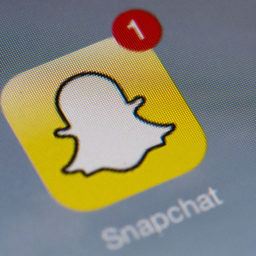What some perceive as ephemeral content’s greatest weakness is actually its most powerful quality. In an online landscape where attention is most scarce, ephemerality is key. 🔑
Last week I had the pleasure of being on a panel with some brilliant minds at Amsterdam Dance Event. The topic: marketing music to millennials. Millennials born in the nineties have a starkly different online profile than eighties babies. For instance, for teens, Snapchat now beats Facebook and Instagram as their top social platform.
The popularity of ephemeral content has to do with a number of factors. One teen writes:
- No social pressure, because the main metric is view count.
- Ephemerality means you don’t need to overthink what you post.
- You actually know who’s watching — if people have seen your post, their usernames are revealed.
The world these people have grown up in is different from that of older generations. Eighties babies used to think online was a bit more of a playground. I cringe looking back (and deleting) some of the photos and status updates I posted on Facebook back in 2007–2009. This generation is aware that information lives forever and their strategies for dealing with that include deleting their digital histories frequently.
So for many labels, artists, and managers the question is:
How do I develop a strategy around ephemeral content?
Your strategy will have to acknowledge a few core concepts:
- Attention, not money, is the scarcest good on the internet. And everyone’s competing for it.
- The online landscape is now a filtered landscape, with algorithms weighing content and deciding whether to show it to your audience, or not.
- In this reality, your most important question is: how do I win my fans’ attention again and again and again?
For that purpose, ephemerality is f*#ing amazing. If you content is only visible for a day at a time — your fans will have to make you part of their daily routine. Now your have your fans’ attention: every single day.
Habit is the key to winning people’s attention over and over. There’s a reason why I send out my music tech newsletter at exactly the same time every week. Some of my subscribers actually go get a cup of coffee and hit refresh on their inbox around the time my newsletter’s supposed to come in. Not only does that lead to good engagement and nice metrics, but it also gives a great connection between you and your followers — it’s a special feeling.
Once understood, ephemerality can be engineered. If Snapchat is not your thing, or if teens are not your main demographic, there are other ways to become part of people’s habit through ephemerality. The expiring nature of Spotify’s Discover Weekly and Release Radar is the reason why those features have been so successful and have deeply influenced the product’s direction.
A great example of a music company that has been engineering ephemerality for years, is the Main Course record label. They offer all of their releases for free on Soundcloud in the first week. Many labels do the opposite and try to drive sales first, but Main Course’s strategy makes sure fans check their page once a week. Imagine doing this on a page you actually owned, instead of on a social profile. You can establish a habit and then when fans come and check, you can nudge their attention to important things like gigs or crowdfunding campaigns.
What some perceive as ephemeral content’s greatest weakness, is actually its most powerful quality. Use its expiring nature to build habit, keep your fans’ attention on you, and lead them to where you need them.
Many thanks to my co-panelists Luke Hood (UKF / AEI), Amy Jayne (Hospital Records), Siofra McComb (The Other Hand), Shane Mansfield (Ticketscript), David Ireland (Magnetic Magazine), and Lucy Blair for putting it all together. You’ve inspired me to put these thoughts down.
If you’d like me to work with you on building habit loops — drop me an email: bas@musicxtechxfuture.com.



